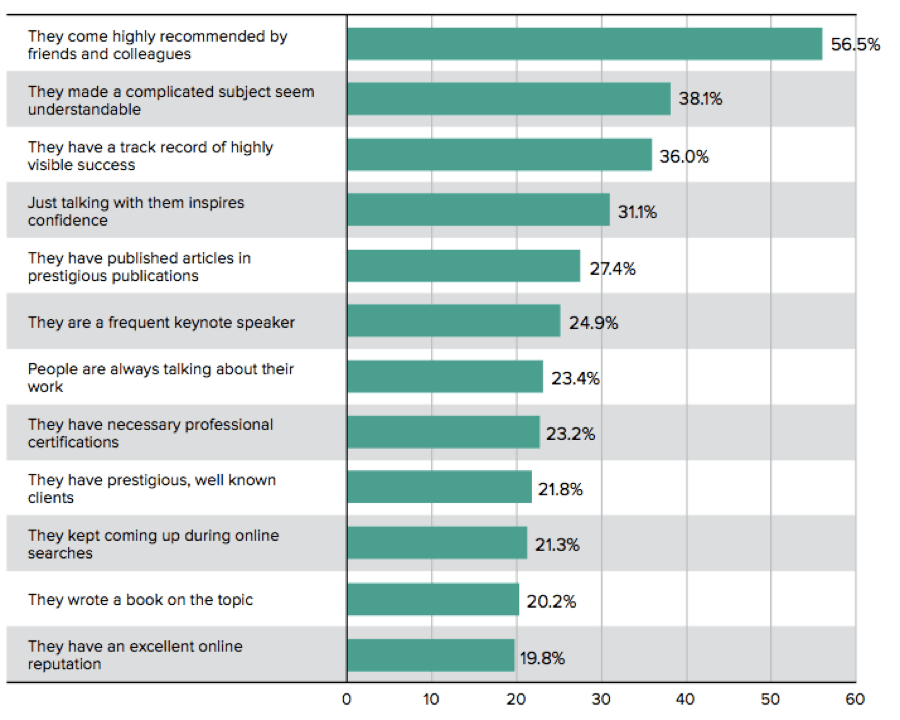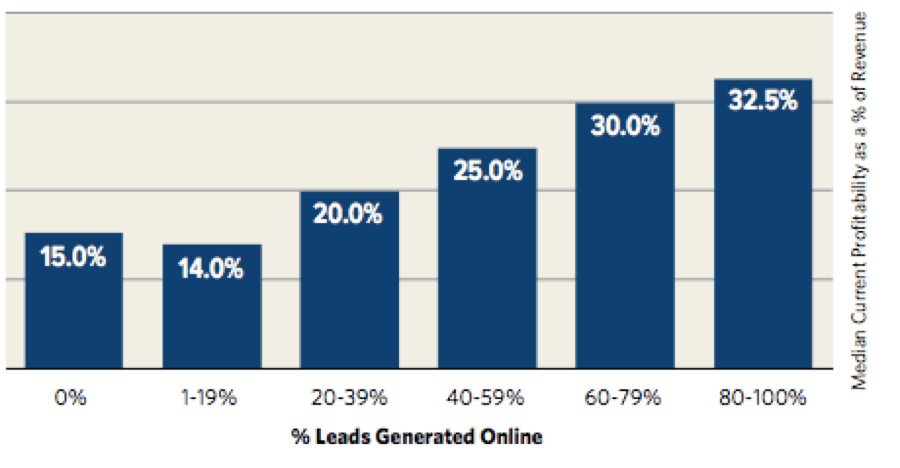As more and more accounting firms recognize the power of content marketing, many get tripped up on a common question: “Should we really give our expertise away?”
For content marketing to truly work, you must offer your audience genuinely robust educational content for free: material that can help them address real problems on their own. This also plays a big part in effective thought leadership marketing.
This is the content that builds your credibility, grows your reputation, and keeps audiences coming back for more insight. But to professionals at many accounting firms, it feels like giving away the secret sauce.
So what should accounting professionals do if they are considering a content marketing effort? How can you overcome your concerns about sharing too much?
Emotional arguments
Note the precise language of the line above: “it feels like giving away the secret sauce.” The operative word here is feels.
For many people, this question is an emotional issue – and that’s understandable. Expertise forms a major component of many firms’ self-identification. The emotionally-charged answer to our question has traditionally been, “No, we should keep our expertise to ourselves.”
Why? Well, the conventional arguments go a little something like this:
- “Our expertise is what we sell as a professional service provider. Giving our knowledge away devalues it.”
- “People won’t hire us if we give our expertise away first.”
- “We’ll lose our competitive advantage. With our expertise out in the wild, competitors will be able to copy us.”
Broadly speaking, these arguments are rooted in fear – fear that your firm will give away what makes you special. But research and experience shows that by making a decision based on fear rather than facts, a firm can miss the opportunity to accelerate growth and succeed at a higher level.
A changing world
Today, people have grown accustomed to finding free education online – particularly the younger generation of professionals. On a dizzying array of topics, a quick Google search will bring you a wealth of data: from statistics on local schools to public records to the best restaurants in town.
Increasingly, people have come to expect the same availability of information from professional services providers. Someone is going to fill the gap with useful information on your area of the accounting industry, and they’re going to establish themselves as the go-to source for authoritative insight.
This rising expectation of free education is an opportunity. Transparency builds trust for today’s professional services purchasers: the more they can easily find out about who you are, what you know, and how you solve problems, the more ready they will be to engage your services. And creating robust educational content achieves all of those aims.
In fact, recent research on over a thousand professional services buyers shows that the ability to explain complex subjects simply is viewed as a key sign of expertise:
Figure 1. What Convinces Clients that Someone is an Expert

After the recommendation of friends and colleagues, this talent for explanation is the most persuasive characteristic an expert can have. The ability to teach a concept effectively underscores one’s mastery of it.
But if you’re not willing to teach your target audience, all you can do is tell them that you are an expert – you can’t show them yourself.
The benefits eclipse the risk
We’ve seen, then, that educational content attracts potential clients and builds your credibility. It is the only way your audience can really judge your expertise as a professional, gaining an appreciation for the exact depth and caliber of your knowledge before they even work with you.
We understand the benefits, but what about the risks?
As with so many concerns born out of fear, the risks aren’t as significant as they seem. On the whole, the fear that your competition will leverage your knowledge is overblown. You don’t want to share something that is truly proprietary, of course, but very few things really are.
Are you afraid that potential clients will no longer need your services? The fact is, do-it-yourselfers are not, never were, and never would have been your clients. Clients are coming to you because they have big problems they know they can’t solve themselves.
SEE ALSO: Top 10 Advantages of Online Marketing for Professional Services
The folks who might use your educational materials rather than engaging your services don’t have big enough problems to warrant a service provider in the first place. But they might have bigger challenges down the line – and if you’ve provided them with free educational materials in the past, they’ll remember your name. Even if they never use your services, these readers may act as industry influencers and recommend you to someone who will.
Indeed, great educational content can lead audiences to recommend you even if they’ve never worked with you directly. You may not have worked with these audiences formally, but your free education is a service, and audiences develop experience with you as a generous service provider.
Committing to education
The biggest reason to share your knowledge is quite simply that it really works. The research shows firms that generate leads online (with free education as a cornerstone of that effort) are more profitable.
Figure 2. Firm Profitability by Leads Generated Online

Not just that, but they grow faster.
Of course, it’s important to remember that for thought leadership marketing to work, it can’t be self-promotional. When you answer, “Yes, we should give our expertise away,” it has to be all about educational content.
Content marketing is all about teaching your audience and being truly helpful. If you remember those goals and commit to educating clients and other readers over time, you can expect to gain the rewards.
On Twitter or LinkedIn? Follow us @HingeMarketing and join us on LinkedIn.

